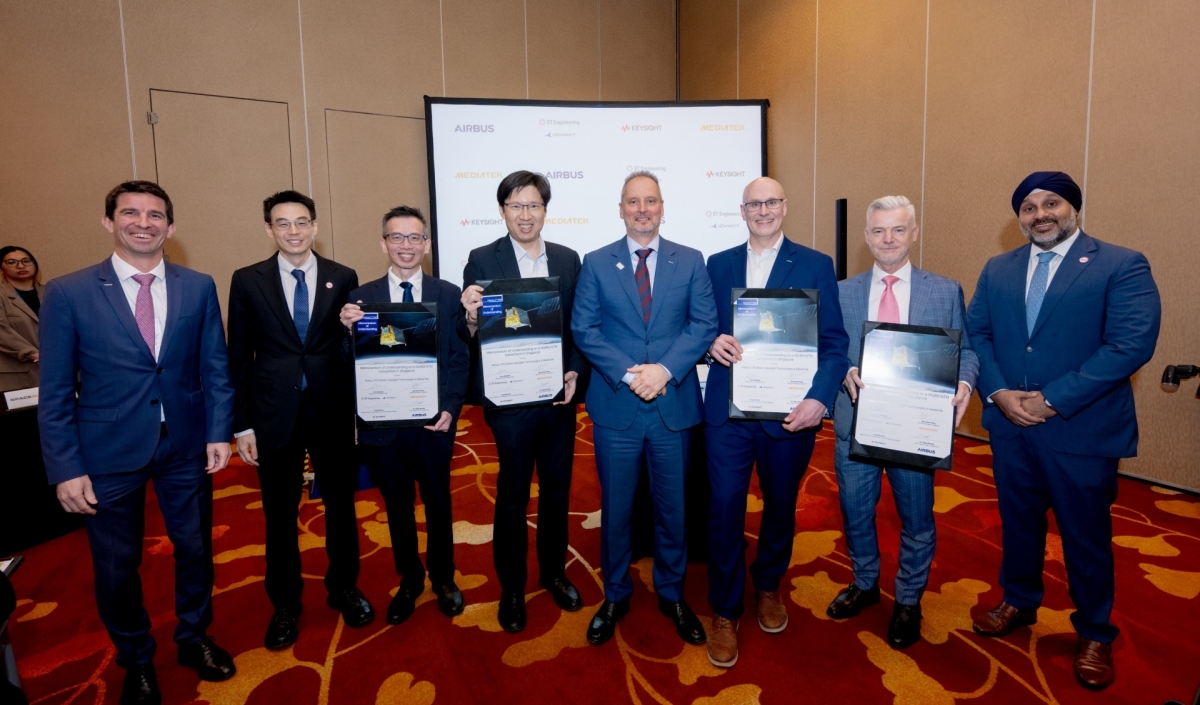INTERNATIONAL INVESTMENT
AND PORTAL

When Vietnam and Singapore upgraded their ties to a Comprehensive Strategic Partnership earlier this year, the move underscored the growing depth of economic cooperation in Southeast Asia. In the first half of 2025 alone, bilateral trade rose by 28.5 per cent on-year, reflecting both nations’ ambition to strengthen connectivity and expand regional growth.
For Vietnamese SMEs, the strengthened diplomatic relationship with Singapore represents a pivotal commercial opportunity that extends far beyond political significance. Beyond being a crucial milestone, this partnership offers a strategic launchpad for Vietnamese entrepreneurs.
By leveraging Singapore's established trade networks and its robust ecosystem of multinational corporations, as well as the support from cross-border financial solutions.
Vietnamese SMEs can secure a direct pathway to Southeast Asia's lucrative markets while simultaneously gaining entry points to global commerce, creating unprecedented opportunities for significant international expansion that could transform their business trajectories.
This country offers one of the world’s most business-friendly environments, ranking second globally for business entry in the World Bank’s B-Ready report, thanks to its transparent regulations, efficient infrastructure, and supportive business policies. Yet, while the opportunities are vast, but for many SMEs, the path to expansion is paved with challenges.
Despite rising ambition, Vietnamese businesses often face steep obstacles when venturing abroad. Establishing a legal entity in a foreign market can be complex, with regulations and incorporation requirements that are difficult to navigate. Once a company has cleared that hurdle, it must still contend with compliance risks across multiple jurisdictions, which can be daunting for small teams with limited legal expertise.
The financial barriers are no less significant. According to the SMB Ambitions Barometer Report 2024, Vietnamese businesses cite the cost of doing business as the top barrier to expansion, with 44 per cent pointing to it as their biggest challenge. Accessing capital also remains difficult: 46 per cent struggle with inconsistent financial performance, 40 per cent with high debt-to-income ratios, and 37 per cent with limited personal or professional networks.
Traditional cross-border banking further compounds the issue. High transaction fees erode margins and reduce competitiveness, while settlement delays can make cash flow unpredictable. At the same time, many SMEs lack access to the networks and advisory support that larger firms rely on to smooth their entry into new markets.
Collectively, these challenges can delay, or even derail, promising companies from taking advantage of regional opportunities.
To address these pain points, business chambers and financial service providers are stepping up with new programmes to guide entrepreneurs through cross-border growth.
One example is the recent collaboration between VietCham Singapore and global payments platform Payoneer, which together aim to provide a “one-stop launchpad” for Vietnamese SMEs.
VietCham Singapore offers one-on-one consultations, legal incorporation support, market navigation advice, and access to investment and startup resources including VC networks and initial public offering advisory. Payoneer complements this with the necessary financial solutions.
With Payoneer receiving accounts, Vietnamese SMEs can accept SGD and other global currencies at low cost, manage cross-border cash flow with greater predictability, and access global markets without the cost and complexity of establishing a foreign entity just to receive payments.
Such initiatives reflect a broader trend: the creation of support ecosystems that lower barriers for smaller firms to enter competitive global markets.
“Our priority is to ensure that Vietnamese SMEs entering Singapore are not only compliant and well-structured, but also connected to the right partners and resources,” said David Nguyen Vu, founder and executive chairman of VietCham Singapore, “This kind of private-sector cooperation complements government efforts to deepen Vietnam – Singapore economic integration, while also contributing to ASEAN’s broader vision of sustainable growth, investment, and innovation”.
Likewise, the Vietnam–Singapore business-to-business (B2B) marketplace platform, Vietnamsgp.arobid.com, was officially launched in Singapore in early August, with the goal of building a comprehensive digital ecosystem to help Vietnamese and Singaporean businesses expand their global B2B trade.
Lennon Tan, chairman of the Singapore Manufacturing Federation, said, "Unlike many other models, this platform is supported by both government and industry associations, which helps build trust among Singaporean and Vietnamese businesses. The platform enables companies to conduct free transactions, upload unlimited product listings, and sign contracts entirely online. Most importantly, it offers a secure business environment, where companies can engage with reliable partners."
As trade ties deepen, more targeted support is expected to emerge, from sector-specific financing to tailored advisory services. For Vietnamese SMEs, the opportunity is clear: the region’s economic momentum, coupled with growing institutional support, makes now the time to take bold steps beyond domestic borders.
 200 SMEs named for Vietnam National Pavilion 2025
200 SMEs named for Vietnam National Pavilion 2025
Vietnam Trade Promotion Agency (Vietrade) and Alibaba.com announced the 200 standout Vietnamese businesses on June 12 that have been chosen for Vietnam National Pavilion 2025.
 Singaporean funds injecting money and know-how
Singaporean funds injecting money and know-how
Singaporean funds are ramping up their capital flows into Vietnam to capture the country’s robust growth potential and emerging industries.
 Danang’s efforts to be the Singapore of Vietnam
Danang’s efforts to be the Singapore of Vietnam
Similar to Singapore, which was blessed with a natural advantage but lacked natural resources and had to attract human capital, Danang is going through a similar phase in efforts to become a city to live, work, and play.



















